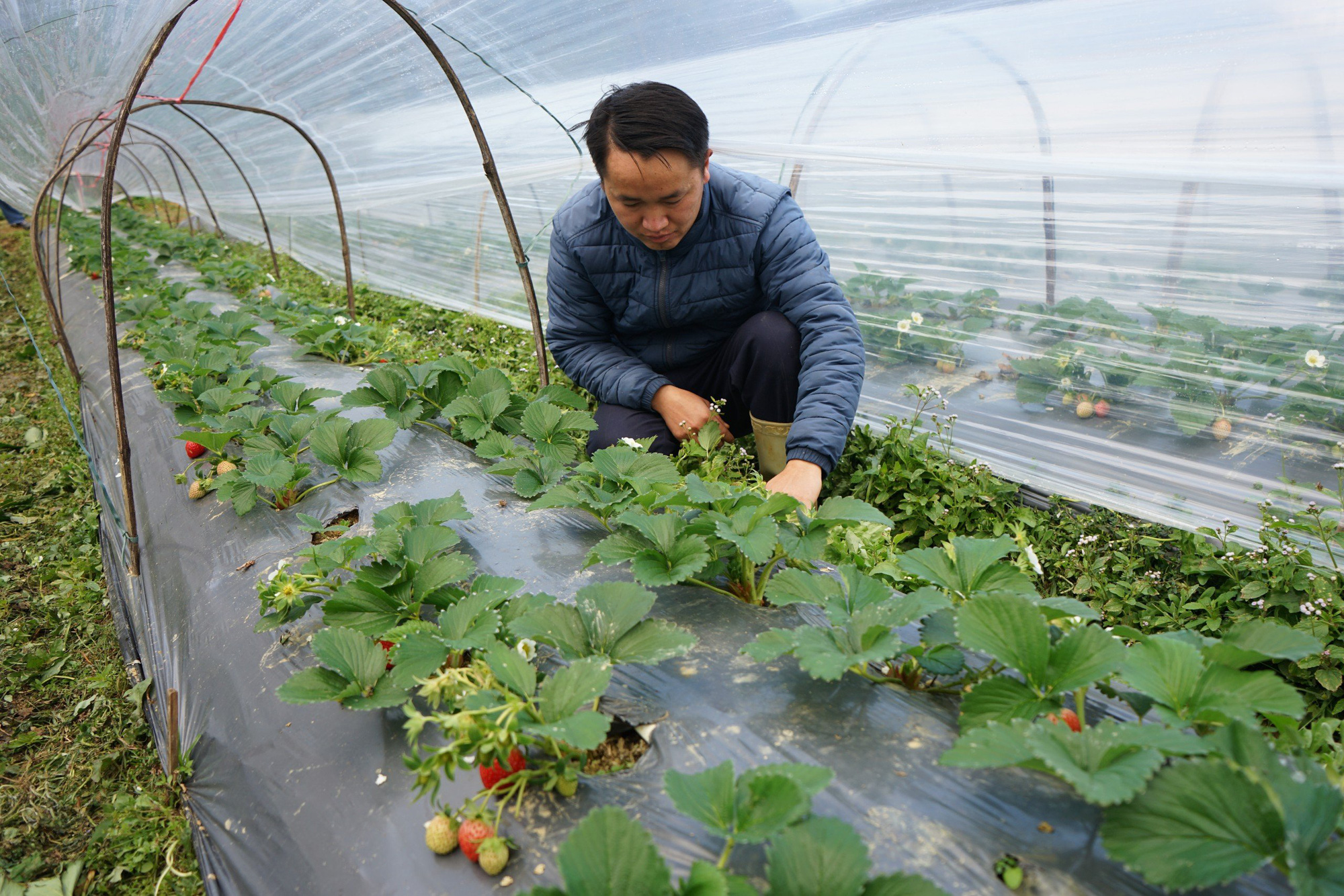At 31, Giang Quang Tien took a bold step into entrepreneurship, choosing kale, the ‘queen of vegetables,’ as his venture’s cornerstone. With a vision to create employment opportunities and support local farmers, Tien embarked on a journey to cultivate kale sustainably in Bac Ha District, Lao Cai Province.
“My goal is to create a range of kale-based products that prioritize health and nutrition,” Tien affirmed. “By doing so, consumers can experience the benefits of clean, high-quality goods produced by our hardworking highland community.”
An Invitation to Try Something New
Tien’s farm, nestled in the tranquil Pa Chu Ty Village, offers an escape from the hustle and bustle of city life. Surrounded by the majestic mountains and hills of Lao Cai Province, it invites visitors to immerse themselves in nature.
Inspired by his interactions with agricultural experts, Tien introduced kale farming to the region, a departure from the traditional rice and corn cultivation. He shared, “I realized that kale offered year-round harvests without the need for repeated planting, so I took a leap of faith and gave it a go.”
With determination, he started small, and when success came, he took a bolder step. Tien left his job in 2021, securing capital to lease 30,000 square meters of land in Pa Chu Ty Village to pursue his dream.
His dedication to learning planting techniques from various sources, including online resources and agricultural models from different provinces, paid off.
|
|
| Giang Quang Tien, tending to strawberries at his farm, is committed to creating a successful kale business venture. Photo: Vu Tuan / Tuoi Tre |
Tien transformed previously fallow land, dedicating 15,000 square meters to kale cultivation and allocating the rest to fruit trees and other vegetables. With improved land conditions, he even expanded the area for fruit trees, specifically including strawberries to meet local demand.
Overcoming Challenges for Success
Launching a business in his homeland came with its fair share of challenges. Tien shared, “I faced obstacles due to high investment costs, but the biggest hurdle was that no one in the region had ever cultivated kale before.” And then came the COVID-19 pandemic, bringing further difficulties.
Although the kale garden thrived, social distancing measures and transportation suspensions made selling the produce tricky. Tien quickly adapted, finding ways to reach local customers and adjusting his planting area to meet community needs. “I’m grateful to have navigated the pandemic without significant losses,” he said.
As challenges subsided, Tien’s farm expanded to over 60,000 square meters. He introduced a stilt house area showcasing farm products, attracting tourists. The farm provides stable income for local workers, especially from ethnic communities.
With increased production, Tien explored innovative product ideas. He has successfully introduced a range of kale-based products, including kale vermicelli, powder, dumplings, and cookies, all well-received by customers.
Determined to succeed, Tien has transformed his homeland business into a thriving venture, benefiting both the local community and nature.
Dong Nai, a spotlight of new-style rural areas
Nearly ten years after implementing the national target program for building a new-style countryside, Dong Nai has completed the program ahead of schedule. All districts and communes in the province have met the criteria of a new-style countryside, making Dong Nai a spotlight in the program’s implementation.









